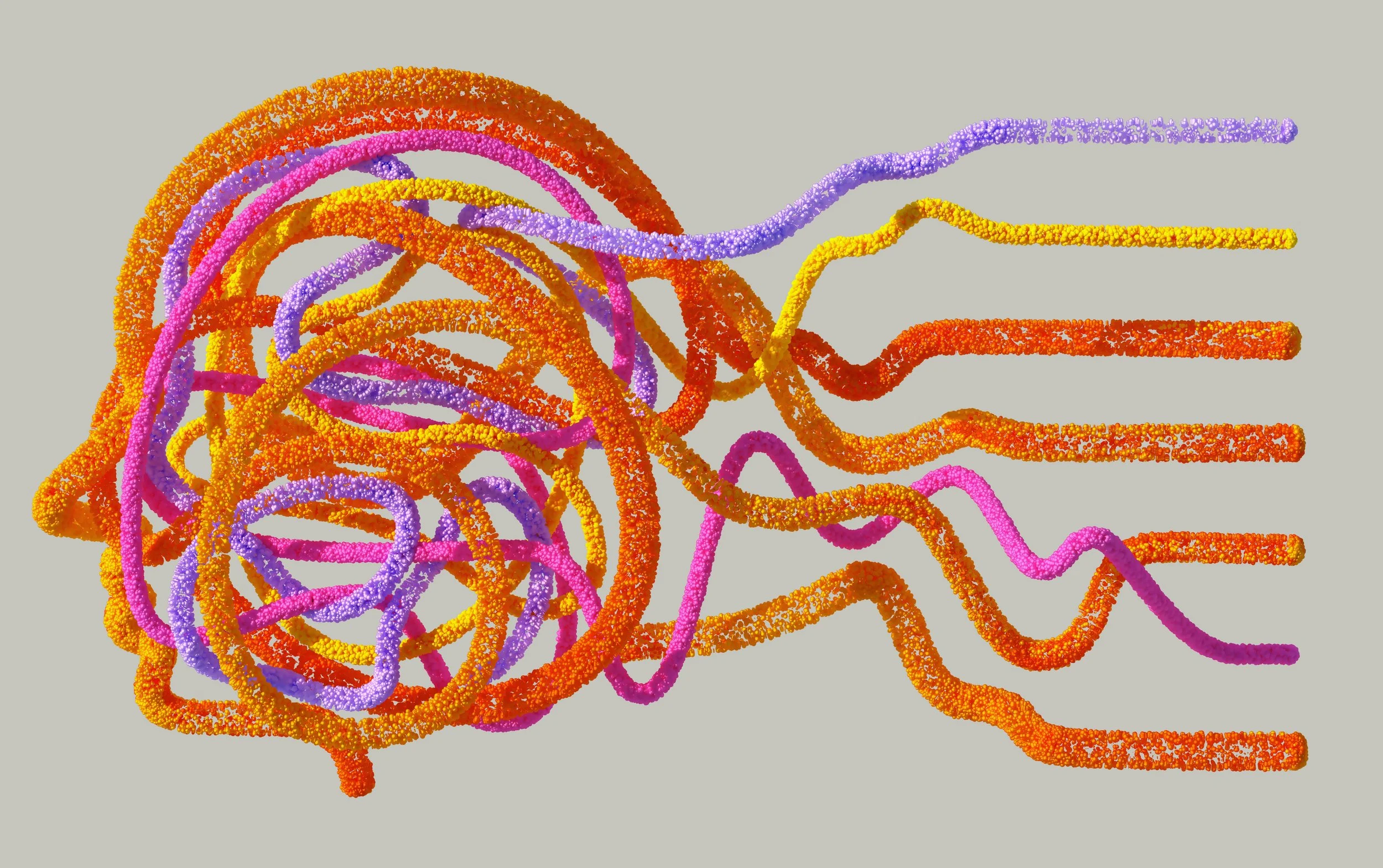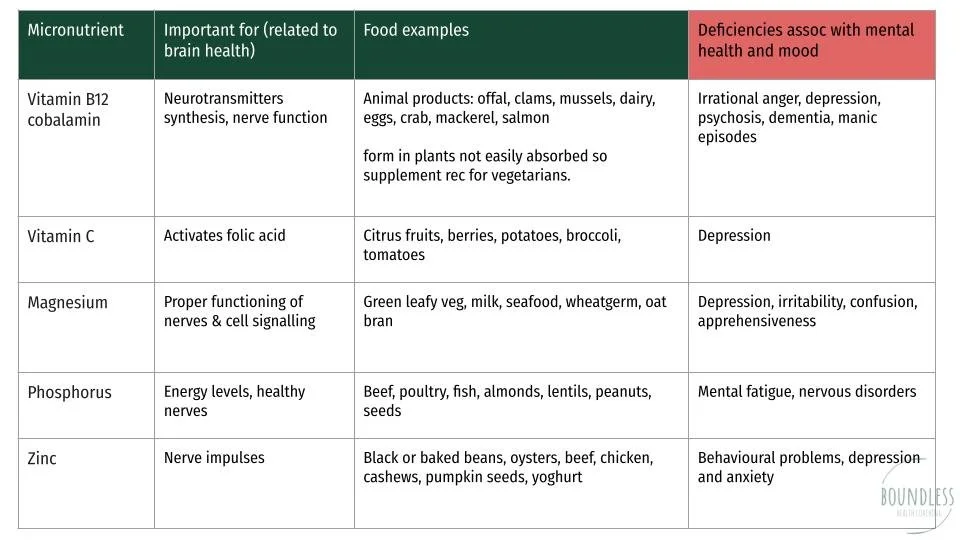Brain Fog Be Gone! Keeping Your Mind Sharp During Perimenopause
Have you recently walked into a room and had no idea why you’re there? Or struggle to remember where you left your keys or phone … while they're still in your hand? Welcome to perimenopause brain fog! A little known perk of getting older, yay!
But fear not! As someone in my mid forties, who's experiencing more 'foggy moments' than I'd like to admit, I decided to take a look and dive into easy, science backed tips to help keep your mind sharp, your focus strong, and your sanity (well mostly) intact and give myself and hopefully you too some hope in this next phase of life.
What is Perimenopause?
Perimenopause can be described as the period leading up to menopause where the hormones oestrogen and testosterone fluctuate.
It can last anywhere from 2 - 8 years and varies greatly from person to person. Menstruation still happens but may be more irregular. Symptoms can range from mild to severe and may include some of the most common:
Hot flushes & sweats
Vaginal dryness
Mood changes
Joint and muscle pain
Low libido
Symptoms may be confused with other things and it can be difficult for women to get the support they need but the good news is that information and the conversation, particularly in the UK, is getting much better and most recently (Nov 2024) NICE reviewed and published updated guidelines [1] for menopause support including access to and offering of HRT for management of menopausal symptoms.
During perimenopause many women experience “brain fog” best described as those frustrating memory lapses, struggles with concentration, and general feeling of mental “fuzziness.”
Menopause is defined as 1 year (12 consecutive months) after the last menstruation. It can happen at different ages but typically between 45 - 55. The average in the UK is 51. However it can happen earlier because of surgery or medical treatment, an inherited condition or unknown cases.
There is still a long way to go for better understanding and research into women in perimenopause and menopause and hopefully now the topic is being talked about more in society we will see some useful findings that will help more women in the future.
So let’s take a look at what’s going on and the science behind brain fog, supported by recent research, and some practical tips to boost mental clarity that you can try today.
What is ‘Brain Fog’
When it feels like your brain goes from high-speed internet to dial-up, just when you’re trying to remember where you left your car keys, or what day it actually is.
What’s causing it?
The exact cause of brain fog is yet to be fully understood but hormonal fluctuations, especially drops in oestrogen, affect the hippocampus and prefrontal cortex, areas essential for memory and focus. This hormonal shift can lead to brain inflammation and reduced neuroplasticity, making it harder to recall information quickly or stay focused [2].
We have oestrogen receptors in virtually every organ, so our bodies are highly sensitive to hormone fluctuations.
Studies show that lower oestrogen correlates with decreased brain energy and connectivity, impacting mental clarity and memory [3]
Oestrogen has neuroprotective effects, helping with memory and cognition. With declining levels, women experience changes in brain chemistry that influence memory processing and mood.
Nutrition Tips to Fuel Your Brain
We know that eating well is good for our health but what does this actually look like and how can it help with symptoms in perimenopause and menopause phases?
The brain needs certain nutrients to perform optimally and deficiencies in these nutrients can have a big impact on our brain and mental health.
Menopause also lowers the level of glucose in the brain, the primary fuel used by brain cells.
A study conducted by Zoe Science and Nutrition has found that improving gut health by supporting beneficial gut bacteria could likewise lessen the impact of menopausal symptoms [4]. Foods high in fibre, like vegetables, fruit, legumes, and whole grains, are great for gut health, as are fermented foods.
Other studies have found that macronutrient (fats, proteins, carbohydrates) under-nutrition, individual nutrient deficiencies may substantially affect brain development and subsequent cognitive health. Several micronutrients like B group vitamins and iron play a crucial role in cognitive health [5]
Omega-3 Fatty Acids are essential for brain health, especially DHA, which supports brain cell membranes. Foods like salmon, walnuts, and flaxseeds can help improve mood and memory.
Leafy Greens and Antioxidants such as spinach, kale, and broccoli are rich in vitamins and antioxidants, which help combat brain inflammation. Studies suggest that antioxidant rich diets slow age related cognitive decline although further research is needed to determine this [6].
Isoflavones & Lignans are a type of phytoestrogen [7] plant compounds that have mild oestrogen like effects in the body.
Lignans are found in high amounts in seeds (especially flaxseeds), as well as in whole grains, legumes, fruits, and vegetables. In the body, lignans are converted by gut bacteria into metabolites that can help balance hormone levels.
Isoflavones examples include soybeans, edamame, tofu, chickpeas, peanuts, tempeh etc. A small study has linked improvements to some symptoms including hot flashes and psychological symptoms [8] although more research is required to determine this.
There are numerous studies outlining the benefits of Mediterranean-style diets, high in omega 3s and antioxidants, for slowing cognitive ageing and supporting memory.
Another interesting area of research is into the benefits of time restricted eating (aligning eating times with circadian patterns) on menopausal symptoms. We do have research into how eating close to bedtime can negatively impact sleep so making some simple changes could help with sleep quality if this is causing an issue. However it’s important to note how some fasting methods might impact muscle loss which is what we are trying to avoid, especially during this phase.
Moving Your Body, Boosting Your Brain
Physical Activity:
Regular physical activity increases brain plasticity, helping the hippocampus (the part of our brain that's responsible for our memory and learning) grow new cells essential for memory and learning [9].
In particular, activities that engage the hippocampus (like dancing or learning new sports), have been linked to higher levels of neuroplasticity and reduced cognitive decline in perimenopausal women.
Studies show it stimulates the production of growth factors, which aid in the formation of new neuronal connections and women in this phase of life have been found to benefit from aerobic exercise. [10].
Regular aerobic exercise, even moderate, increases blood flow to the brain and helps reduce stress.
Strength training is also very important, especially after 30 when we start to lose muscle each decade, as it’s very difficult to maintain lean muscle and bone density and by engaging in resistance training and lifting heavy things can support healthy bone and muscle maintenance needed.
Mental Exercises:
Brain games, puzzles and learning new skills can also play a crucial role by keeping neural pathways active and encouraging the brain to adapt and form new connections.
Sleep Your Way to a Sharper Mind
Quality sleep is essential for memory consolidation and emotional regulation, both of which tend to suffer with hormone changes. Sleep is shown to clear brain toxins and support memory consolidation [11], making good sleep hygiene a must for mental clarity.
Encourage sleep hygiene practices, like setting a regular bedtime, getting light exposure as close to waking up as possible, avoiding screens an hour before bed, creating a cool and dark environment and considering relaxation techniques such as deep breathing.
Stress Reduction: Managing Mood to Improve Memory
Chronic stress increases inflammation. By identifying and understanding our stress triggers we can put solutions in place to manage them. When we know what's happening in our bodies and how our lifestyles impact them, we gain greater control over our stress responses, leading to lasting health benefits. The goal is to create a balance where we can handle life’s daily challenges while also making time for enjoyable activities and relaxation.
Reducing stress with mindfulness exercises can protect the brain from stress related damage and improve concentration. Mindfulness has been linked to lower stress hormones and improved cognitive flexibility in ageing populations, suggesting it’s beneficial for managing perimenopausal brain fog as well.
Connecting with friends or groups for social support, which can reduce stress and boost feel good hormones helping improve mental health.
In Summary: Small Changes, Big Impact
Modifiable key lifestyle changes that can help clear brain fog and support overall cognitive health include balancing a nutritious diet, staying physically and mentally active, prioritising sleep, and managing unhelpful stress levels.
Everyone is different, and requires a personalised approach. Trying some of these simple lifestyle changes might help ease symptoms, alongside speaking with your GP to get the right support you need.
Email me or book a free discovery call, if you’d like some help making improvements to your lifestyle to best support you through this next phase 🌱🍎
or if you are an organisation who would like in house or online talks delivered to your employees, or help with menopause policy development reach out for more information.
Research
[1] NICE guidelines: https://www.nice.org.uk/guidance/ng23/resources/menopause-identification-and-management-pdf-1837330217413
[2] https://academic.oup.com/edrv/article-abstract/24/2/133/2424179?redirectedFrom=fulltext
[3] https://www.jneurosci.org/content/26/41/10332
[4] https://zoe.com/learn/menopause-metabolism-study
[5] https://pmc.ncbi.nlm.nih.gov/articles/PMC10083484/
[6] https://pubmed.ncbi.nlm.nih.gov/23744025/
[7] https://academic.oup.com/jcem/article-abstract/83/7/2223/2865105?redirectedFrom=fulltext&login=false
[9] https://www.pnas.org/doi/abs/10.1073/pnas.1015950108
[10] https://www.sciencedirect.com/science/article/pii/S0925443920301666
[11] https://pmc.ncbi.nlm.nih.gov/articles/PMC4651462/#:~:text=More%20specifically%2C%20when%20one%20sleeps,help%20maintain%20its%20normal%20functioning.
Further support
British Menopause Society: https://thebms.org.uk
Menopause Support UK: https://menopausesupport.co.uk
The Menopause Charity: https://www.themenopausecharity.org







